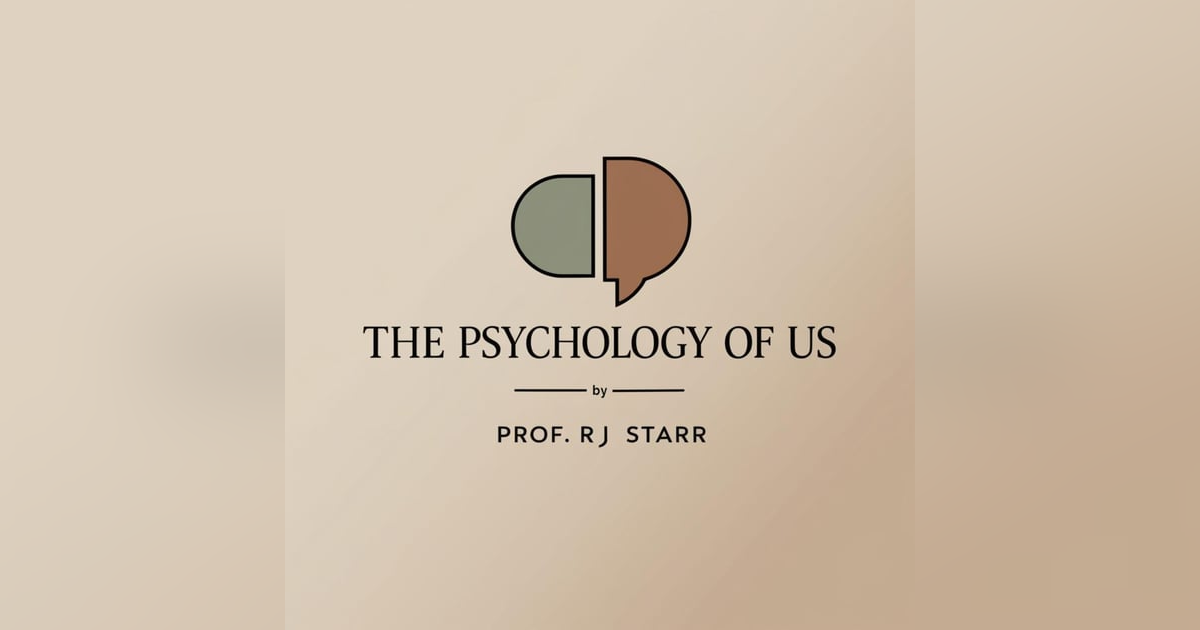The Psychology of Needing to Be First

Why does being second feel so uncomfortable?
You’re already going fast. The car in front of you is, too. But something in your chest tightens. You feel the pressure to pass, to get ahead—even if it changes nothing about your arrival time. This episode explores that exact moment: the psychological discomfort of not being first.
In this episode of The Psychology of Us, Professor RJ Starr unpacks the deeper emotional layers behind one of the most ordinary but telling human behaviors: the drive to pass. Whether it's on the road, in line at the grocery store, or in the subtle power dynamics of daily life, we examine why people get irritated, reactive, and even aggressive when someone else gets there first.
What appears to be impatience or competitiveness is often a mask for something more fragile: status anxiety, emotional dysregulation, and a fragile ego system built on external validation. Being first offers a brief illusion of control. And in a world that leaves many people feeling powerless, unseen, or irrelevant, even small moments—like who gets to merge first or who speaks first in a meeting—become emotionally loaded.
We explore:
- Why the need to be first is often rooted in psychological survival
- How driving becomes a theatre for displacement, dominance, and power restoration
- The difference between ambition and control addiction
- How fragile ego systems use “winning” to regulate self-worth
- Why people interpret being second as a personal threat instead of a neutral fact
- The emotional cost of treating ordinary moments like competitions
- What it reveals about your nervous system when you can’t let someone go ahead
Through grounded psychological insight and clear real-world examples, RJ Starr offers listeners a mirror: not just into why people behave the way they do on the road, but how those same control patterns show up in families, friendships, group chats, and work meetings.
We talk about how the smallest moments—letting someone in, waiting your turn, choosing not to assert—become powerful markers of emotional maturity. And how real power isn’t loud or rushed. It’s steady. It doesn’t panic when someone else goes first. It doesn’t tie self-worth to placement.
This isn’t an episode about road rage. It’s about the deeper psychology of urgency, status, and emotional fragility—and what it takes to step out of the loop.
Because the real question isn’t, “Why do people drive like that?”
It’s: What are they trying to prove? And to who?
And more importantly—
What would change in your life if you no longer needed to be first?





